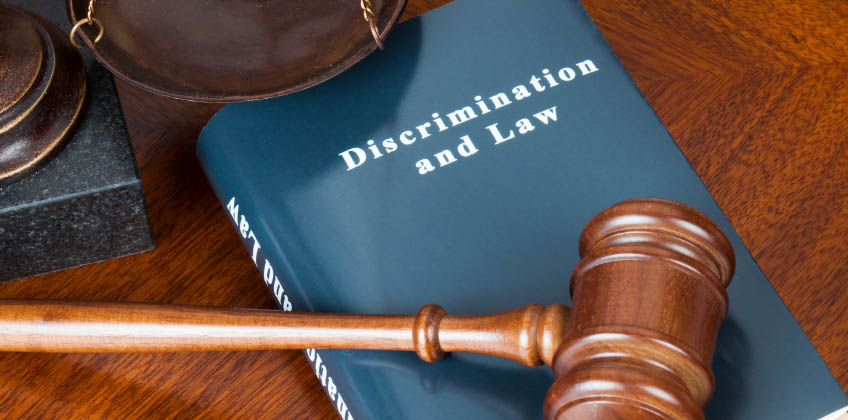Two months ago, I voiced one big criticism of Richard Hanania’s excellent piece on the curiously ubiquitous institutional influence of the left:
Hanania still fails to explain the sheer uniformity of left-wing cultural dominance. Competition normally delivers more diversity than we’re getting. And for that, I stand by my Explanation #5, which I flesh out greater detail here.
Explanation #5. Discrimination law covertly stymies the creation of right-wing firms. Most obviously, any firm that openly and aggressively opposed #MeToo and #BLM would soon be sued into oblivion.
Which does raise the question: Since the right runs the government roughly half the time, why don’t they try a lot harder to defang the “discrimination laws” that do so much to cause political discrimination?
In his latest piece, Hanania forcefully corrects his earlier oversight. Indeed, this is my all-time favorite Hanania essay. Preliminaries:
Before proceeding, it is important to clarify what wokeness actually is. I’d argue it has 3 components:
1) A belief that any disparities in outcomes favoring whites over non-whites or men over women are caused by discrimination…
2) The speech of those who would argue against 1 needs to be restricted in the interest of overcoming such disparities, and the safety and emotional well-being of the victimized group in question.
3) Bureaucracies are needed that reflect the beliefs in 1 and 2, working to overcome disparities and managing speech and social relations.
Key thesis:
Each of these things can be traced to law. The Civil Rights Act of 1964 banned discrimination based on race and gender. While most at the time thought this would simply remove explicit discrimination, and many of the proponents of the bill made that promise, courts and regulators expanded the concept of “non-discrimination” to mean almost anything that advantages one group over another.
How discrimination law unfolded:
As the government invented new standards for what counts as “discrimination,” it was forcing more aggressive action on the part of the private sector. Executive Order 11246, signed by President Johnson, required all government contractors and subcontractors who did over $10,000 in government business to “take affirmative action to ensure that applicants are employed, and that employees are treated during employment, without regard to their race, color, religion, sex or national origin.” The category of “sex” was added in 1967. In 1969, Richard Nixon signed EO 11478, which forced affirmative action onto the federal government itself.
Across the federal government and among contractors, affirmative action assumed that “but for discrimination, statistical parity among racial and ethnic groups would be the norm.”
Government interpretation of the Civil Rights Act also invented the concept of the “hostile work environment.” UCLA law professor Eugene Volokh has written about how this has been used to restrict free speech.
The blight of HR:
The rise of HR departments can be directly traced to the federal government’s race and gender policies, which involve direct control of the federal bureaucracy, the “carrot” of government contracts, and the “sticks” of EEOC enforcement and lawsuit threats.
As Harvard sociologist Frank Dobbin wrote in Inventing Equal Opportunity, it was civil rights law that revolutionized the American workplace. Corporations started to hire full time staff in order to keep track of government mandates, which were vague and could change at any moment. There was a sense of “keeping up with the Joneses,” in which every company and institution had to be more anti-racist and anti-sexist than the next one, leading to more and more absurd diversity trainings and other programs.
To decide whether an institution had discriminated against a protected group, courts and regulators would often use a “best practices” approach, meaning that if your competitors adopted the latest fad coming out of academia or the HR world, you felt the need to do the same.
What is to be done? Deregulate! While it’s hardly a full remedy, at least deregulation allows alternatives to the current business orthodoxy to flourish:
The punchline of all this is that an anti-wokeness agenda would involve, at the very least,
1) Eliminating disparate impact, making the law require evidence of intentional discrimination.
2) Getting rid of the concept of hostile work environment, or defining it in extremely narrow and explicit terms, making sure that it does not restrict political or religious speech.
3) Repealing the executive orders that created and expanded affirmative action among government contractors and the federal workforce.
One reason to be optimistic is that much of this work can be done without having to pass laws, which is almost impossible to do on controversial issues in the current environment, but through the executive branch and the courts.
Brilliant:
Understanding that wokeness is law may be able to help us get at the question of why conservatives are less motivated to be politically engaged than liberals. It’s not an exaggeration to say that conservative views on race and gender are often of questionable legality in the workplace. Even if conservatives cared as much as liberals, the state is always there with its thumb on the scale, having helped construct bureaucracies inside and outside government that create incentives against expressing certain beliefs or building institutions that are managed in ways that offend left wing officials and activists.
The result has been a kind of learned helplessness. Not only do conservatives feel like they can’t influence institutions, but Republican leaders haven’t even made the argument that they can ever actually change things.
I’ve repeatedly argued that ADHD makes democratic politics less dysfunctional. Five years ago, Republicans focused on immigration, the critical issue where they are most wrong. During Trump’s term, however, they failed to permanently change immigration law. Yet thanks to ADHD, they’re moving on to a new top issue. And this time, they’re moving in the right direction. I doubt Republican strategists will actually follow Hanania’s advice, but hopefully they’ll prove me wrong. When regulation is out of control, deregulation is the obvious remedy. And discrimination law really is out of control.




